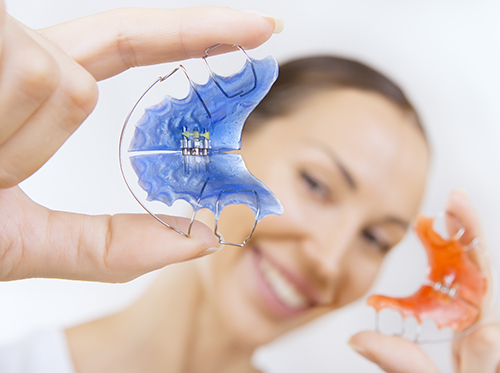October 28th, 2020

As we all know, or should by now, the key to maintaining great oral health is keeping up with a daily plan of flossing, brushing, and using mouthwash. These three practices in combination will help you avoid tooth decay and keep bacterial infections at bay.
At Rubin Orthodontics, we’ve noticed that it’s usually not the toothbrush or floss that people have trouble picking, but the mouthwash.
Depending on the ingredients, different mouthwashes will have different effects on your oral health. Here are some ideas to take under consideration when you’re trying to decide which type of mouthwash will best fit your needs.
- If gum health is your concern, antiseptic mouthwashes are designed to reduce bacteria near the gum line.
- If you drink a lot of bottled water, you may want to consider a fluoride rinse to make sure your teeth develop the level of strength they need.
- Generally, any mouthwash will combat bad breath, but some are especially designed to do so.
- Opt for products that are ADA approved, to ensure you aren’t exposing your teeth to harmful chemicals.
- If you experience an uncomfortable, burning sensation when you use a wash, stop it and try another!
Still have questions about mouthwash? Feel free to ask Dr. Rubin during your next visit to our Far Rockaway office! We’re always happy to answer your questions. Happy rinsing!
October 21st, 2020

Many patients underestimate the importance of wearing their retainers after their braces come off, but it is one of the most critical post care practices to keep your teeth in alignment. Why spend all that time, energy, and money to straighten your teeth when you don't plan to keep them straightened after treatment?
What is a retainer?
As the name implies, a retainer keeps teeth from moving back to the positions in which they started before treatment was administered; they "retain" your smile and bite. There are many different types of retainers—some are removable and some are permanent. Some retainers are made of plastic and metal (known as Hawley retainers) and others are all plastic or all metal. Some retainers can even be bonded to the back of your teeth!
How long do I need to wear it?
If you've been given a removable retainer by Dr. Rubin, you may be wondering how long you need to wear it. It takes time for the tissues and bones around your teeth to reorganize and set into place after braces treatment.
The amount of time you’ll need to wear your retainer depends on your unique situation, but typically, retainers should be worn at least as long as the time you spent in braces. You might need to wear them full-time for a while, and then transition to wearing them only at night. Dr. Rubin will have a treatment plan especially for you, and if you stick to it, you'll always have a straight smile.
Nothing is forever (at least without retainers!)
Research has shown that there is no “permanent” position for your teeth to remain in. In fact, some studies say upward of 70% of patients will see a change to their bite and tooth alignment as they get older. This applies to people who have had orthodontic treatment and those who have not. Of course, some people's teeth never seem to shift—you can consider them the lucky ones, as most people's teeth do.
And this is precisely where retainers come in. The only way to ensure your teeth stay in alignment long-term is by wearing your retainers. If you have any questions about retainers or your treatment plan, please ask any member of our Far Rockaway staff.
October 14th, 2020

Your first few days with braces will feel rather odd, awkward, and even painful. The day you get your braces you will probably just feel weird, like you have something in your mouth – because you do. You are most likely to feel pain and soreness during the second and third days. After that, you should be fine. If you experience any pain with your braces, there are a few things you can do to get some relief.
Home Remedies
Rinsing your mouth with warm salt water will soothe it and promote healing. Rinse several times a day or when your mouth, particularly mouth sores, are hurting. You can also take some Tylenol every four hours. Dr. Rubin and our team advise against products that contain ibuprofen because it slows down the movement of your teeth.
You can also eat cold foods like ice cream or yogurt. The cold of the food will help dull the pain. Ice packs applied to your mouth help as well. You can also swish ice water around your mouth, but DO NOT eat ice!
Cool Products
Products for canker sores can be applied to the mouth sores you develop from your braces. There are also various rinses you can use that act as a shield or barrier in your mouth, and protect your mouth sores from further irritation.
Dr. Rubin and our team may have given you some dental wax to put on the abrasive areas of your braces to protect your mouth. Putting dental wax on the brackets creates a barrier that keeps your mouth from getting scraped and sore.
Bite wafers are another great pain relief too. When you bite down on the wafer, it increases circulation in your gums, which can ease the pain a bit. Just a little pressure will work; you don’t want to bite too hard. And they usually come in cool colors, too!
The pain won’t last forever. One day you will wake up and you won’t have any pain. In fact, you probably won’t even notice the braces in your mouth at all!
October 7th, 2020

Halloween is a time to enjoy delicious candies you might avoid the rest of the year. Youngsters who get to dress up and ask for sweet treats out trick-or-treating cherish this holiday.
If you have braces on, Dr. Rubin would like you still to have fun and celebrate Halloween this year!
It’s easy to get carried away on Halloween by eating too much candy at once. Most parents try to prevent the all-too-common sugar high their kids experience on Halloween night. While there are certain candies that should be avoided, not all candy will cause problems for kids with braces. After trick-or-treating, you could trade unsafe candies with siblings and/or friends so they don’t miss out on the sugar buzz.
Dr. Rubin and our team have come up with a list of teeth-friendly treats that should keep you from worrying about breaking your braces. We also came up with a list of candies to avoid, so as to save you a trip to our Far Rockaway office. Remember to be extra careful when you indulge this Halloween!
Braces-Friendly Sweets
- Solid chocolate: Milk, white, or dark
- Nougat-filled candy bars: Three Musketeers
- Powdery candy: Sweet Tarts, Pixie Stix
- Mint-flavored candy
- Malted milk balls
- Soft cookies
- Peanut butter crackers
Avoid These Treats
- Sticky candy: Starbursts, toffee, Tootsie Rolls
- Hard candy: Suckers, Jolly Ranchers
- Taffy
- Caramels
- Fruit chews
- Gum
- Caramel apples
- Skittles
- M&Ms
When in doubt, ask Dr. Rubin if a particular candy is safe to eat when you have braces. We hope you enjoy your Halloween sweets, and look forward to seeing you at your next appointment! Happy Halloween!





